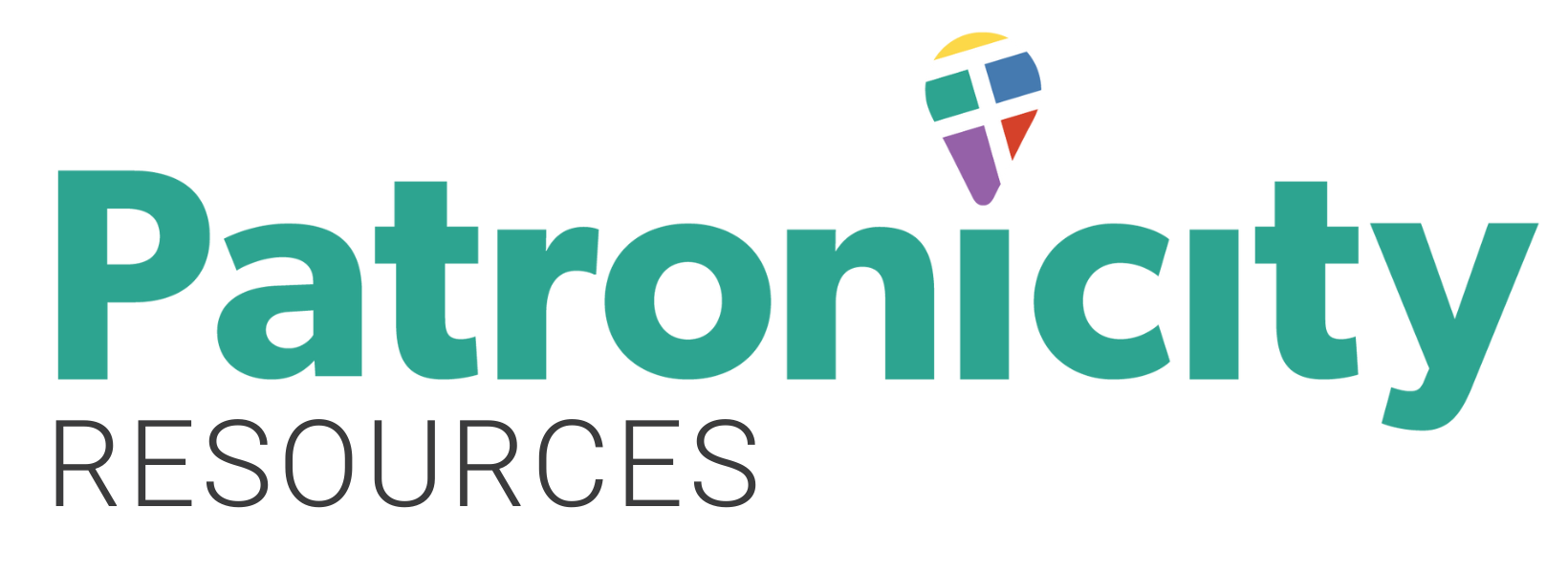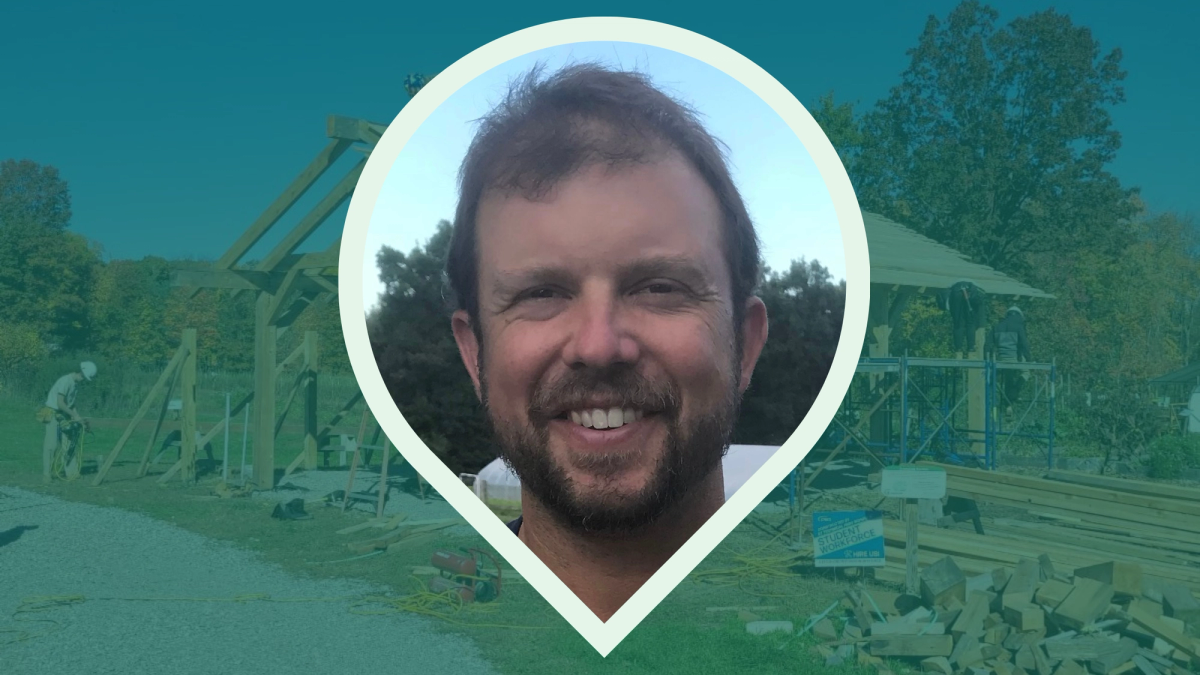
Patron in the City: Steve Munno, Massaro Community Farm
We believe that passionate individuals can spur change in their communities. We refer to those individuals as Patrons in the City, dedicating their time, sweat, and tears to building vibrant communities.
Massaro Community Farm in Woodbridge, Connecticut, envisions a world where everyone has access to fresh, healthy, affordable food, communities feel connected to the land and each other, and individuals build a healthier future for themselves and the planet. Simply put, their mission is to farm, feed people, and build community.
One of the farm's long-standing dreams was to create a pavilion in its Learning Garden as a central space for youth education and community programs. They envisioned a sustainable solar pavilion that would provide a space for the community to gather and create essential energy for the farm.
In 2022, that dream became a reality. In collaboration with Emmet O’Brien Technical High School, the pavilion was built, and solar panels were installed. However, there was still more work to do to make the pavilion a welcoming and sustainable resource for the community.
In 2023, the farm launched a crowdfunding campaign to complete the construction of the solar pavilion, including connecting the solar panels, installing electrical and plumbing, and adding finishing touches to the space. The campaign received incredible support from the community, with 172 patrons contributing $15,730 to the project.
By reaching their goal, the campaign unlocked a matching grant from Sustainable CT’s Community Match Fund. The program offers a 1:1 match of up to $15,000 to support climate change and clean energy projects that promote, support, or target energy efficiency, renewable energy, and GHG reduction.
Now in its final stages of construction, the farm looks forward to welcoming the community to enjoy the pavilion in the coming months. Once complete, it will serve as a key gathering place for field trips, summer camps, school programs, community workshops, farmer trainings, and more.
We recently spoke with Steve Munno, Executive Farm Director, to learn more about the solar pavilion's importance and his experience crowdfunding through Sustainable CT’s Community Match Fund program.
Steve Munno, he/him, is the Executive Farm Director at Massaro Community Farm in Woodbridge, Connecticut. Steve is a graduate of Wesleyan University in Connecticut. He received a Certificate in Ecological Horticulture from UC Santa Cruz and a Certificate in Climate Change and Health from the Yale School of Public Health. Prior to coming to Massaro, Steve worked in environmental education and farmed in both Massachusetts and California. Steve was a co-founding member of the New CT Farmer Alliance. He serves on the board of the CT chapter of the Northeast Organic Farming Association and was elected to the Woodbridge Board of Selectmen in 2023.
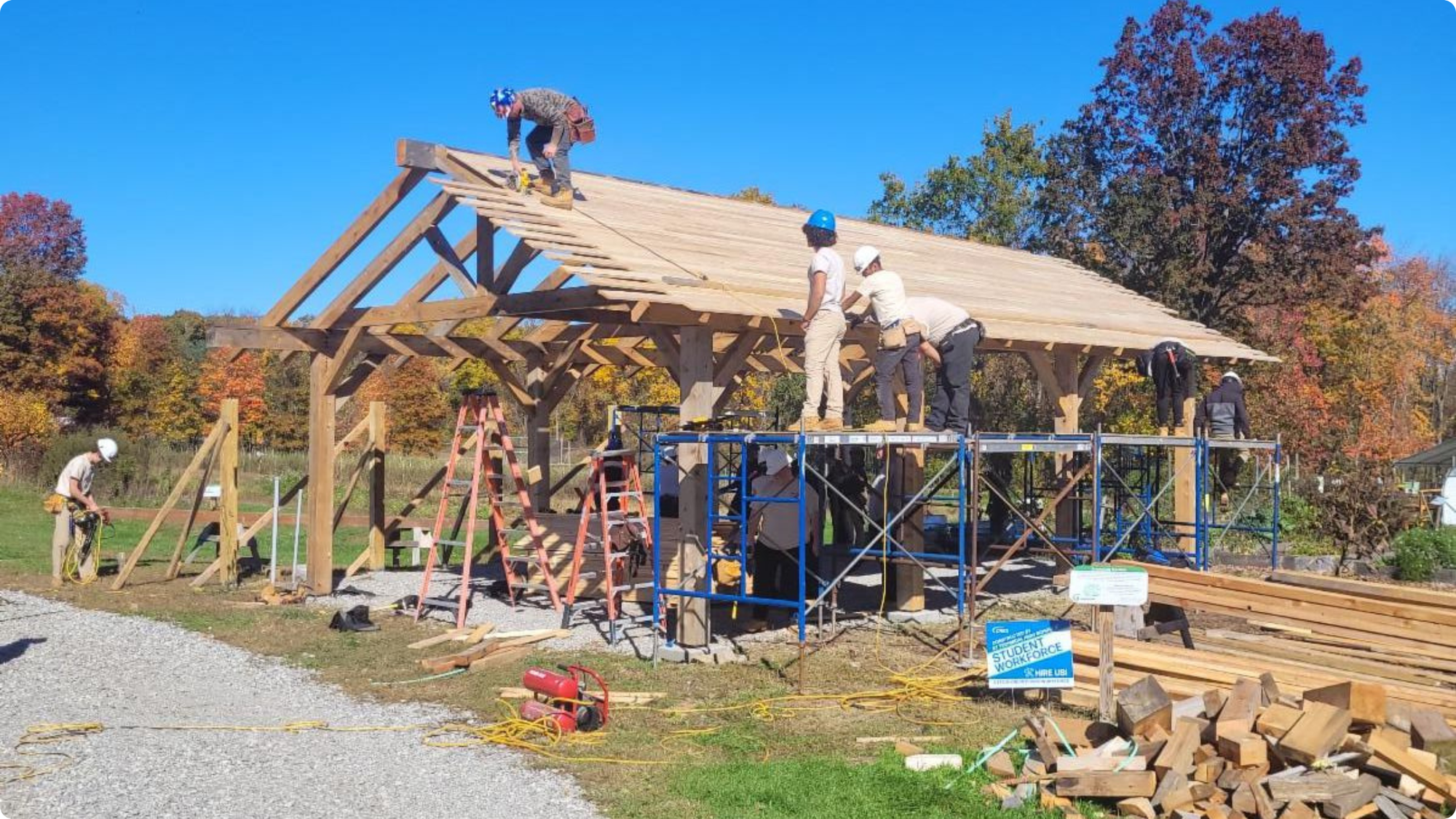
Patronicity: Why do you love where you live and work? Tell us about your community!
Steve: I love living in Woodbridge and working at Massaro Community Farm. Woodbridge is a beautiful town with lots of green space, a wonderful system of trails, and a committed and engaged community. Woodbridge borders New Haven and the Naugatuck Valley, so in addition to having our own small-town feel, we have the benefit of being part of these broader communities, which offer so much to enrich our lives here.
Patronicity: What was your project, and why is it necessary?
Steve: Our project was to complete the final phases of the pavilion in our learning garden. This included doing the electrical work to connect the solar panels on the roof of the pavilion, installing lights and electric outlets, finishing two bathrooms and sinks, installing a brick border, and painting the pavilion.
These final phases are needed to meet the needs of the youth education and community programming that happens on the farm. The pavilion provides a beautiful, protected, shaded space in the heart of our community farm. Adding electricity and bathrooms to the pavilion expands the possibilities for what can happen in that space, and the final touches with the paint and bricks will help preserve and beautify the area.
Patronicity: What inspired you to get involved or build this project?
Steve: Creating a learning garden and building a pavilion to be the focal point of our youth education and community programs has actually been a dream of ours since we began operations in 2010. Prior to building the pavilion, we would use pop-up tents or a temporary, seasonal tent to provide a gathering and teaching space protected from the conditions.
As our programming and community use grew, we knew we had to build something more permanent and something that could hold up to the extreme storms we’ve seen in recent years due to climate change.
We began planning, and eventually partnered with Emmett O’Brien Technical High School to build the pavilion and install the solar panels. The school is just down the road from the farm, so it was great to have the students come create something meaningful that they can use in their community.
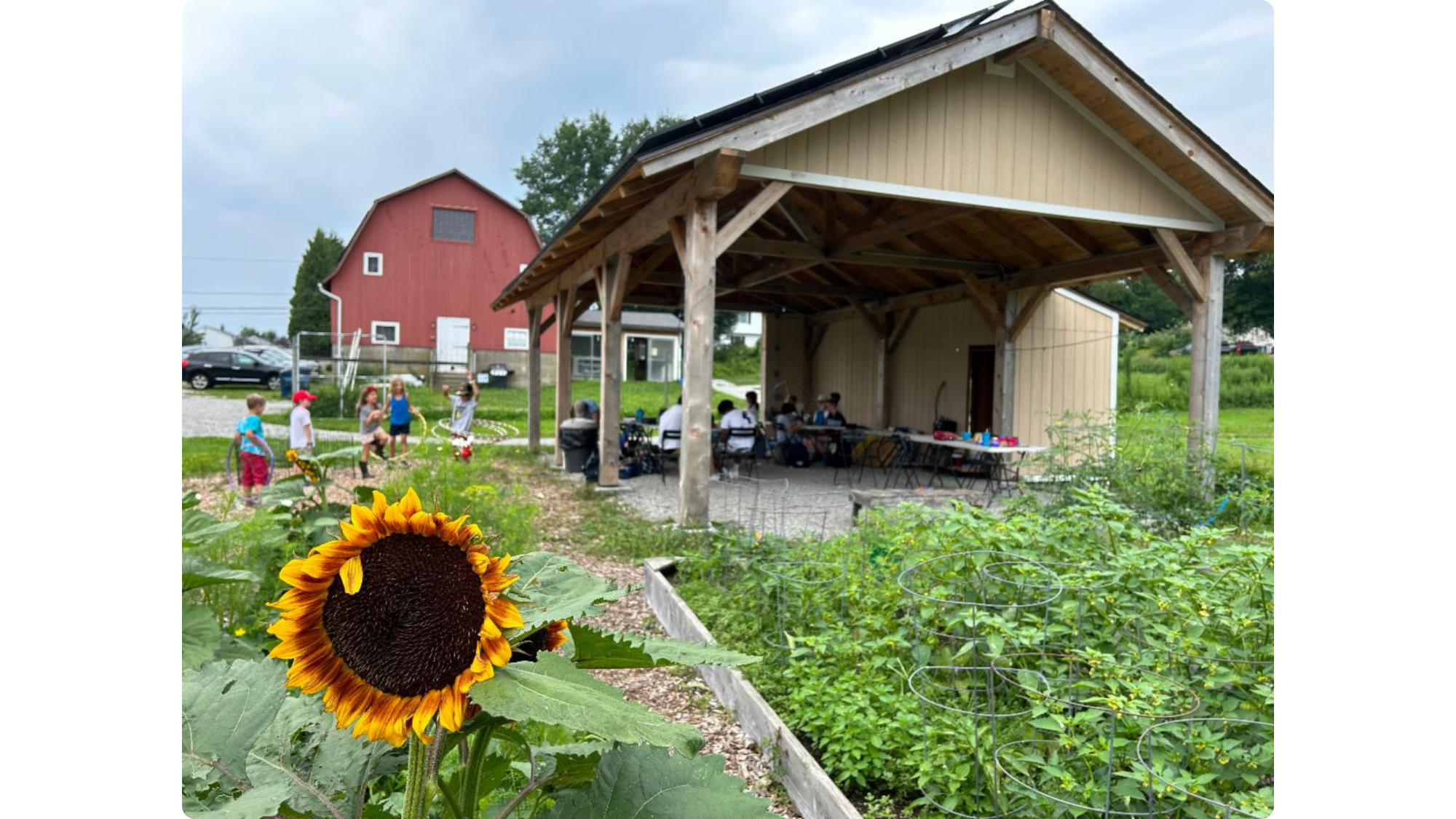
Patronicity: What have been the results of your crowdfunding campaign? How has the project changed your community?
Steve: The results of the crowdfunding campaign were truly incredible. Over 170 people contributed to help raise over $15,000. Combined with the match from Sustainable CT, we were able to meet our goal in securing the funds to complete the final phases of the solar pavilion.
That kind of participation in a project amplifies community interest and engagement in what we are doing. I believe Massaro Community Farm in many ways is already appreciated as an important community asset, but I think this Learning Garden & Solar Pavilion project will drive real change in the years ahead at the farm, with a broader and more diverse set of people and programs being drawn in to utilize, explore, and expand what is happening here.
Patronicity: How has the community responded to your project?
Steve: The response has been wonderful, and the community is eager to take advantage of the opportunities here. At this very moment, we have over 30 kids here using the pavilion as the home base for our summer camp, which runs weekly from late June through mid-August.
During the school year, we’ve had field trips, after-school and home-school programs utilizing the pavilion, and there have been a number of community uses already, such as birthday parties, anniversaries, baby showers, movie nights, cooking demos, non-profit retreats, meetings, and networking events.
Patronicity: What do you hope community members take away from this project?
Steve: I hope people feel proud of what they’ve helped create here with this project. I hope they see this as a vital “third space” for the community and as an example of what people can do to co-create the kind of community and spaces they want to have.
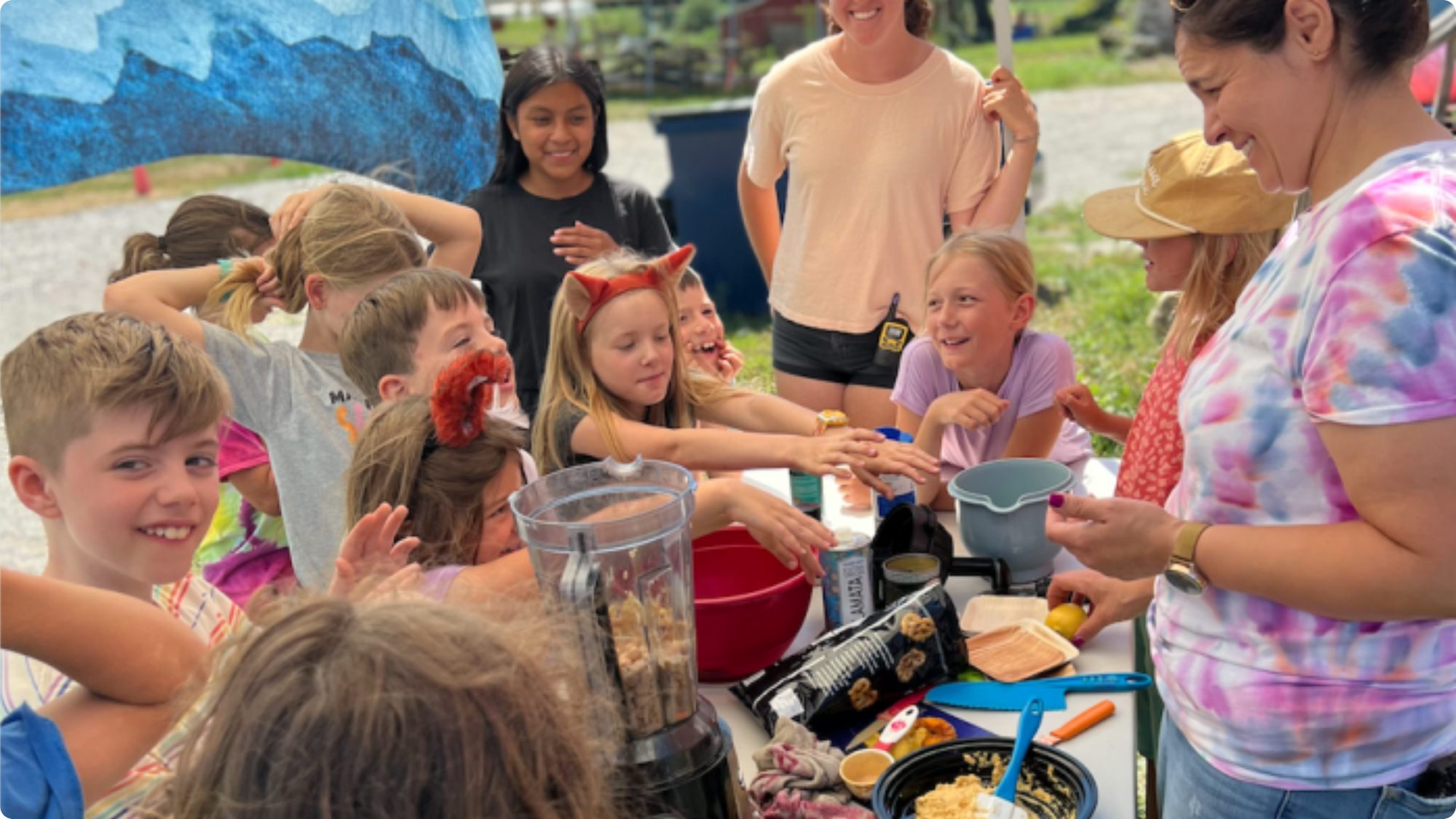
Patronicity: How did Sustainable CT’s matching dollars support your project and further its impact on the community?
Steve: It is amazing what a spark the Sustainable CT’s matching dollars provided. People were clearly inspired by the opportunity and motivated to ensure that our community takes full advantage of the chance to leverage these funds.
Patronicity: What could other communities learn from your project?
Steve: I think other communities can see from our project that people want to see smart installations of solar in their communities, they understand and want to participate in the transition to clean energy, and that it is really desirable to have beautiful, green, protected community spaces where people can gather, learn and share, where people can connect to the land and to each other.
Patronicity: If someone wanted to become more involved in their community, what advice would you give them?
Steve: Be kind, be patient, and be a good listener. See where and how your passions, energy, skills and availability might serve the community. Build partnerships wherever possible, lift up existing community efforts. Know that what might seem like a small contribution can often make a big impact, and be deeply meaningful to your community.
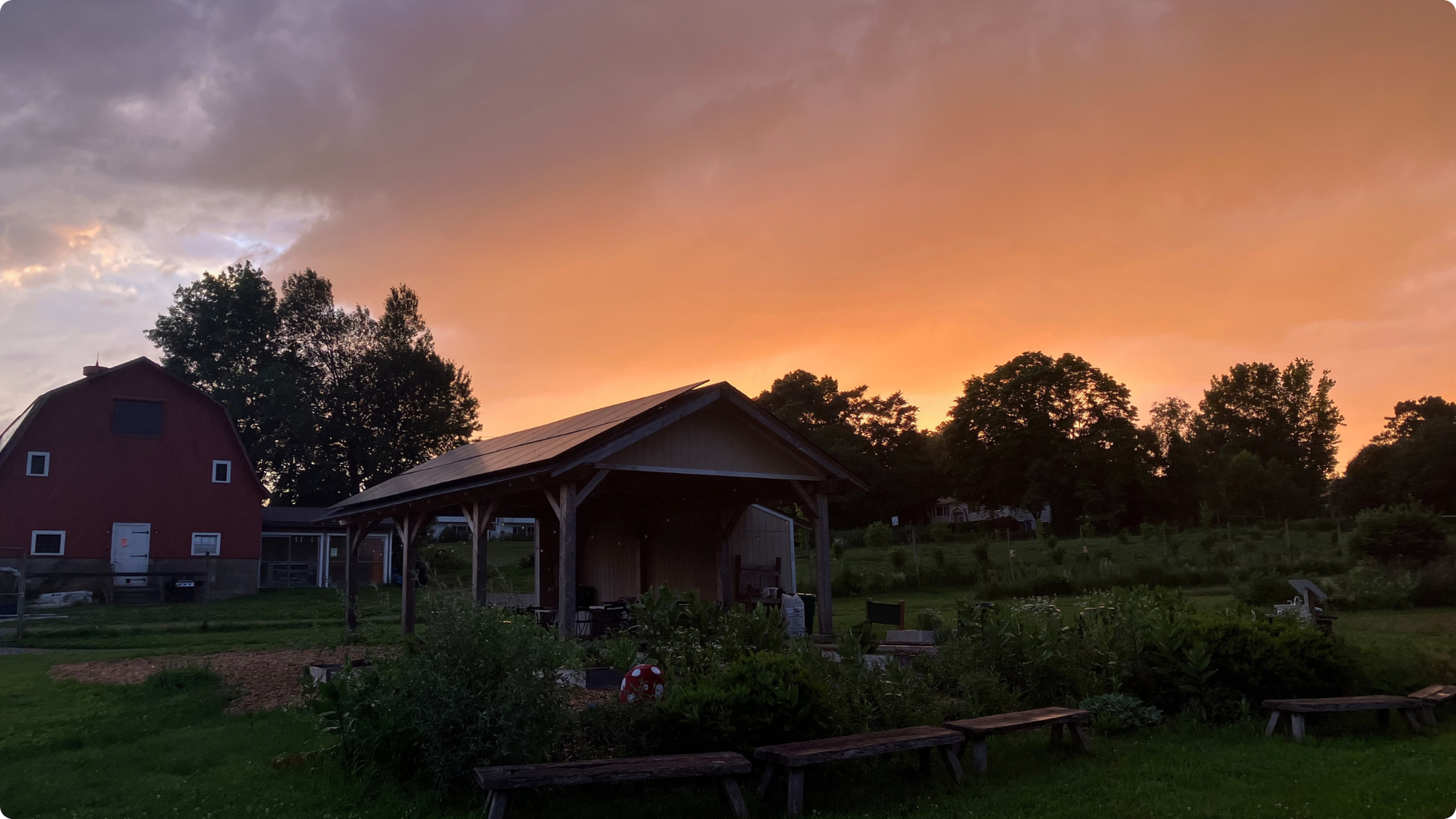
Do you have an idea to make your Connecticut community more equitable, sustainable, and vibrant?
Whether you’re dreaming of more green spaces, solar for public spaces, greenways for biking and walking, murals and other public art, green jobs programs, or community gardens, Sustainable CT’s Community Match Fund can help make your great idea a reality by providing fast, flexible funding and support for sustainability projects that engage your Connecticut community. Learn more at www.patronicity.com/sustainablect.
